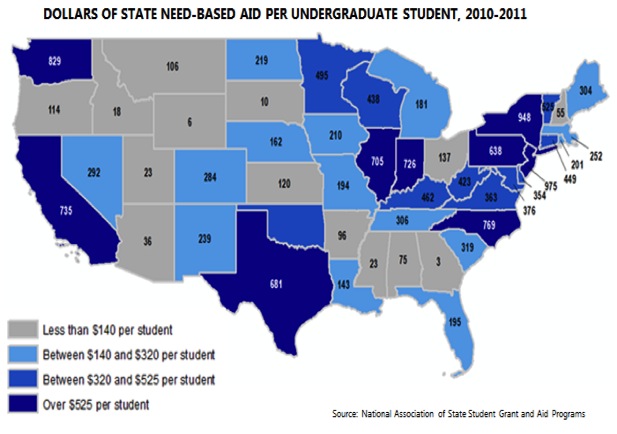NEED FOR STATE FINANCIAL AID BECOMING MORE URGENT
September 5th, 2012
Over the last several years, thousands of Mississippians of all ages have looked to the state’s community colleges and universities to gain important skills and better opportunities for quality, lasting careers.
A large portion of these students come from low-income families and need financial support to attend college. As the number of students from low-income households rises across higher education, ensuring state need-based financial aid, or aid distributed based on a student’s financial situation, is available to more students has become more urgent.
Need Based Aid and Adults
Close to half (45%) of Mississippi’s community college students in the Fall of 2011 were 22 years old or older.¹ Many of these students are independent adults with jobs and families. Adults that choose to attend college may not to be able work or earn the same amount as they did prior to enrolling in school. That means they will have to cover the additional costs with fewer resources, building a the need for accessible financial aid.
Mississippi’s Aid Per Student Among The Nation’s Lowest
The map below shades states by the amount of state funding provided in 2011 for need-based financial aid perundergraduate student. Mississippi ranks among the nation’s lowest in dollars set aside for need-based at per student with $23 per undergraduate. In contrast Louisiana sets aside $143 per student and Tennessee sets aside $306. Texas is among the nation’s highest at $681.
Even after receiving federal financial in the form of Pell Grants, many Mississippi college and university students have substantial unmet needs. That unmet need comes from the gap between financial aid and the cost of tuition, books, room, board, and other supplies. As the cost of attending college continues to rise, Mississippi is at-risk of pricing more students out of pursuing their goals of a college degree, job readiness, and economic security.
By increasing state appropriations for need-based financial aid, dedicating more resources to counselors that assist with financial aid applications, and raising investments in work-study, Mississippi can make college more financially feasible for the state’s current and future workforce.
Author: Sarah Welker, Policy Analyst¹Mississippi Community College Board. Division of Research and Planning.






